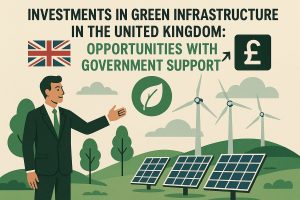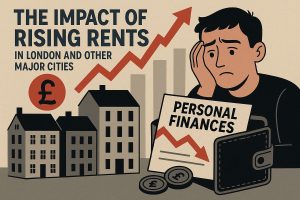Cost of living pressures in 2025 have brought new financial challenges to households across the United Kingdom. With inflation persisting in areas such as food, housing, and energy, families are being forced to rethink how they allocate their finances. What was once a comfortable margin for discretionary spending has narrowed significantly, compelling Britons to reconsider daily expenses, savings strategies, and even long-term investments.
This shift has created a ripple effect across all layers of society, from younger adults entering the workforce to older generations living on fixed incomes. Consumption habits are undergoing a noticeable transformation, not only in terms of what people are buying but also in how they are approaching financial planning, leisure activities, and sustainable practices.
Rising food and grocery adjustments

One of the most immediate areas where changes are evident is in grocery shopping. As food prices continue to climb, British households are prioritizing essentials over luxuries. Meat, fresh fish, and imported goods are being replaced with more affordable staples such as beans, pasta, and locally produced vegetables.
Another visible adaptation is the growing popularity of discount chains and wholesale retailers. Stores offering bulk purchases or lower-cost alternatives are seeing increased foot traffic. This change is not just about saving money but also about adjusting routines, as families now plan meals more carefully to minimize waste.
Energy bills and household compromises
The steep rise in energy bills has forced many households to adopt new strategies for managing their monthly expenses. Families are reducing heating usage, investing in thicker clothing for indoor comfort, and relying more on programmable thermostats to control costs.
Moreover, the demand for home insulation services and energy-efficient appliances has surged, reflecting a practical response to long-term utility costs. While some see this as an opportunity to create more sustainable households, others struggle to balance the upfront costs of these investments with their immediate need to keep expenses manageable.
Shifts in leisure and entertainment choices
Discretionary spending has also experienced a dramatic transformation. Leisure activities, once a consistent part of the British lifestyle, are now approached with greater caution. Dining out has become an occasional treat rather than a weekly habit, while cinemas, concerts, and festivals are seeing attendance decline.
Streaming services continue to grow in popularity, but even here, families are consolidating subscriptions or rotating them month by month to cut down on unnecessary costs. Some Britons are also engaging in “digital detox” periods, reducing screen time and finding enjoyment in hobbies like cooking, gardening, or reading, which require less financial investment.
The role of financial institutions
Banks and financial services have played a significant role in helping consumers adjust to this new reality. Companies like Barclays have introduced budgeting tools and personalized financial advice services to support households in navigating the crisis.
At the same time, credit usage is climbing, with many families turning to short-term loans or credit cards to bridge gaps in their monthly budgets. While this provides temporary relief, it raises concerns about long-term debt accumulation. The balance between accessing necessary financial support and avoiding unsustainable borrowing has become one of the most pressing issues for households across the UK.
Looking ahead to long-term adaptations
The increase in the cost of living is not viewed as a temporary disruption but as an enduring challenge that requires systemic adaptation. Britons are increasingly adopting minimalist mindsets, focusing on quality rather than quantity in their purchases, and placing a higher value on durability and practicality. This change suggests a cultural evolution that may continue even if economic conditions improve in the future.
Furthermore, sustainability is becoming intertwined with financial necessity. As households look to reduce waste, reuse items, and invest in energy-efficient solutions, they are simultaneously embracing environmentally conscious practices. The economic pressures of 2025 may ultimately accelerate the UK’s transition toward a more sustainable and resource-aware society, even if that shift was initially driven by necessity rather than choice.





